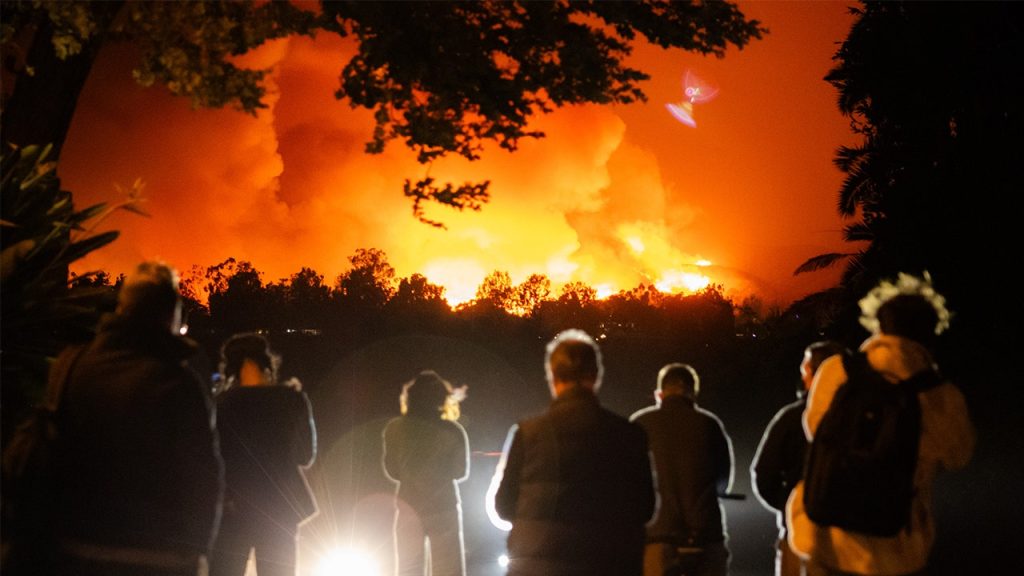The escalating threat landscape targeting public figures and critical infrastructure personnel has prompted increased security measures for Los Angeles Department of Water and Power (LADWP) CEO Janisse Quinones. Following a series of threats against her and other water department employees, coinciding with the outbreak of wildfires across Southern California, Quinones was assigned a 24/7 security detail by the Los Angeles Police Department (LAPD). This move underscores the growing concern over the safety of public officials, particularly in the context of natural disasters and heightened public scrutiny. The decision to provide Quinones with enhanced protection comes in the wake of the recent shooting of United Healthcare CEO Brian Thompson in New York, highlighting the potential dangers faced by high-profile individuals in positions of authority. The heightened security measures reflect a broader trend of increasing threats and violence directed towards public figures and essential service providers.
The threats against Quinones and LADWP employees arose amidst widespread criticism regarding the city’s preparedness for wildfires and the subsequent water distribution strategies. The wildfires, which ravaged parts of Southern California, placed immense strain on resources and infrastructure, leading to heightened public anxiety and scrutiny of public officials responsible for managing the crisis. Quinones, who reportedly earns $750,000 annually, found herself at the center of public debate concerning the city’s response to the disaster. The LADWP confirmed the existence of threats against its employees, including incidents at a downtown facility, emphasizing the seriousness with which these threats were taken and the immediate reporting to law enforcement agencies. The department, however, refrained from discussing specific security measures to protect its workforce.
The LADWP’s statement emphasized the critical role its employees play in supporting the city’s response to emergencies, highlighting their dedication and commitment to public service. The department’s commitment to ensuring the safety and well-being of its employees is paramount, recognizing that threats against them are unacceptable and undermine the essential services they provide to the community. The department underscored its commitment to collaborating with law enforcement to investigate and address these threats, emphasizing the importance of a safe working environment for all employees.
The situation surrounding Quinones and the LADWP reflects the broader challenges faced by public utilities and their leadership, particularly in the context of climate change and increasing frequency of natural disasters. As wildfires become more prevalent and intense, pressure mounts on utilities to ensure adequate preparedness and response capabilities. This pressure can translate into increased scrutiny and criticism of public officials, potentially escalating into threats and acts of violence. The LADWP’s experience highlights the need for robust security measures to protect individuals in these critical roles and ensure they can carry out their duties without fear for their safety.
Quinones’ previous statements regarding her leadership approach, which she characterized as incorporating an “equity lens” and promoting social justice, further contextualize the situation. Her focus on equity and social justice may have contributed to both support and criticism from different segments of the public. While some may applaud her commitment to these values, others may disagree with her approach, potentially fueling the negative sentiment directed towards her. The threats against Quinones and other LADWP employees underscore the complex and often polarized environment in which public officials operate, particularly in times of crisis.
The incident involving Quinones and the LADWP serves as a stark reminder of the increasing risks faced by public officials and essential service providers in an increasingly volatile environment. The heightened security measures implemented in response to the threats underscore the need for proactive measures to protect individuals in positions of responsibility. As natural disasters become more frequent and intense, coupled with increasing social and political polarization, it is crucial for organizations and communities to prioritize the safety and security of those who serve the public. This incident highlights the importance of a collective effort to condemn violence and threats against public officials and create a climate of respect and support for those who dedicate themselves to public service.

